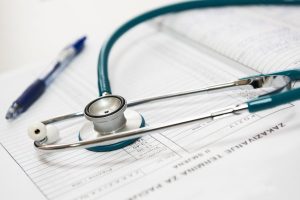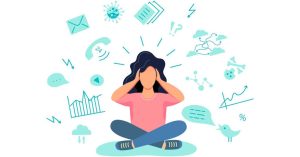Things to Know About Prescription Drug Addiction

What is drug addiction?
Addiction is a prolonged brain disease which usually occurs again. Addiction brings about obsessive drug seeking and use irrespective of the dangerous effects on the addicted individual as well as the people around the individual. The abuse of prescription drugs cause changes in the appearance of the brain and how it functions. For many people, the decision is usually voluntary when first taking prescription drugs. However, over time, repeated drug abuse causes changes in the brain hence affecting the self-control of an individual as well as their capacity to come up with sound decisions. While this is taking place, the individual will still have the powerful impulses to use more drugs.
Prescription drug abuse
Prescription drugs come third in the most commonly abused drug category. These drugs come behind marijuana and alcohol as well as ahead of heroin, cocaine, and methamphetamine. Prescription drug abuse takes place when one uses the prescription drug for other purposes other than the original one. The prescription drug can be abused by the initial patient who the doctor prescribed the medicine to or a different user of the drug. Prescription drug abuse can involve any medication that a doctor prescribes. Some of the commonly abused drugs include opioids, depressants, and stimulants. Opioids are used for pain treatment while depressants uses are for depression treatment, anxiety, and sleep disorders. Stimulants are typically used to treat ADHD in young people. Generally, approximated 48 million individuals have experienced prescription drug abuse which is almost 20% of the American population.
Reasons for abusing prescription drugs
• To get high or feel good
• To relieve or relax tension
• To moderate appetite
• For peer pressure
• To feed an addiction
Commonly abused prescription drugs
Opioids
Opioids are majorly used for pain relief. Such pains that opioids treat include hydromorphone and oxycodone. Opioids function by altering the natural pain-relieving chemicals of the body and attached to the brain receptors hence, blocking the brain’s perception of the pain. Opioids can cause nausea, drowsiness, slow breathing and constipation. In addition to this, opioids can also produce euphoria through affecting the regions of the brain that mediates pleasure. When abused, opiates can be highly addictive as well as cause some severe disorders when it comes to breathing. Moreover, opioids can be more dangerous when combined with alcohol before being used.
Depressants (Tranquilizers and Sedatives)
Depressants are usually prescribed to treat sleep disorders, anxiety, and panic attacks. Central nervous system depressants slow down the normal function of the brain thus producing a calming effect or drowsiness. When abused, depressants can cause slow heartbeat more specifically when mixed with alcohol and other prescriptions. Besides, it can also lead to seizures and withdrawal when one stops after using them for a long time.
Stimulants
Stimulants like Dexedrine, Adderall, and Ritalin improve attention, alertness, and energy. Doctors frequently prescribe them for health reasons such as depression, hyperactivity disorder, attention-deficit, and narcolepsy. Stimulants work by enhancing the dopamine and norepinephrine effects in the brain. These effects increase heart rate; constrict blood vessels, blood pressure hence opening up the respiratory system pathways. Moreover, stimulants can cause the euphoric effects. When stimulants are abused, they can be addictive, cause irregular heartbeat and extremely high body temperatures.
Signs and symptoms of prescription drug addiction
• Excessive mood swings
• Poor decision-making
• Decrease or increase in sleep
• Forging, selling or stealing prescriptions
• Seeking prescription from several doctors
• Taking an overdose of the prescribed drug
Prescription Drug Addiction Treatment and Recovery
Addiction to both prescribed and illicit drugs is a chronic disease just like any other disease and has treatment. Many people are living in long-term recovery. No specific kind of treatment is suitable for everyone with prescription drug addiction. The treatment process must consider the type of drug under abuse as well as the needs of the person. Treatment may also incorporate such components as counseling, detoxification, pharmacological therapies including mutual self-help as well as the recovery support.
Prescription drugs are typically strong medication thus the reason why a doctor has to prescribe them in the first place. All kinds of medicine come with some harmful risk effects, and sometimes these risks can be severe ones. Some of the commonly abused prescription drugs include stimulants, opioids, and depressants.






